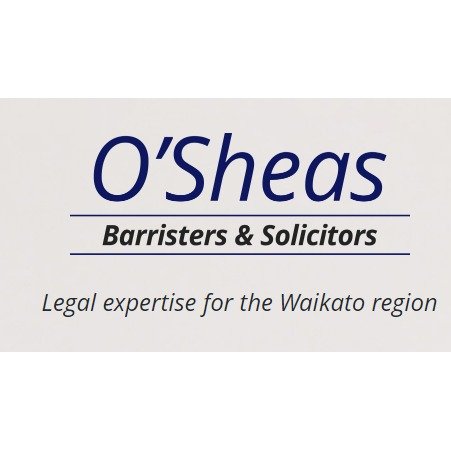Best Civil Rights Lawyers in Hamilton
Share your needs with us, get contacted by law firms.
Free. Takes 2 min.
List of the best lawyers in Hamilton, New Zealand
About Civil Rights Law in Hamilton, New Zealand:
Civil Rights Law in Hamilton, New Zealand primarily focuses on the protection and preservation of the personal rights and freedoms of individuals. This includes the right to freedom of speech, assembly and association, movement, and religion. Also, it ensures equality and non-discrimination based on race, gender, and disabilities. These rights are anchored in New Zealand's primary legal document, the New Zealand Bill of Rights Act 1990, and Human Rights Act 1993.
Why You May Need a Lawyer:
There are several situations where individuals may require legal help in Civil Rights. This could include instances of discrimination at workplace or public services based on race, gender, or disability. You may also require legal assistance if you believe your freedom of speech, religion, or assembly has been infringed upon. Hiring a lawyer ensures proper legal representation and maximisation of your chances of achieving a favourable outcome.
Local Laws Overview:
Hamilton, New Zealand closely follows the New Zealand Bill of Rights Act 1990 and the Human Rights Act 1993. Both these acts collectively ensure equality, non-discrimination, and the guarantee of basic freedoms. Additionally, the Privacy Act 2020 protects an individual's right to privacy, including personal information. Further, the Employment Relations Act 2000 provides protection against unjustifiable dismissal and unfair discrimination in the workplace.
Frequently Asked Questions:
1. What are civil rights?
Civil rights are the fundamental rights that every citizen is entitled to, such as freedom of speech, assembly, movement, and religion. It also includes the right to be free from discrimination on the grounds of race, nationality, gender, or disability.
2. What do civil rights lawyers do?
Civil rights lawyers advise and represent individuals who believe their civil rights have been infringed upon. This can involve court representation, legal advice, and helping clients make civil rights claims.
3. How can I report a civil rights violation?
You can report a civil rights violation to the New Zealand Human Rights Commission. It may also be advisable to consult with a lawyer to understand your legal options.
4. What protection does the law provide against discrimination?
The Human Rights Act 1993 and the New Zealand Bill of Rights Act 1990 protect individuals from discrimination based on various grounds, including race, age, gender, sexual orientation, and disability in various areas such as employment, housing, and public services.
5. Can I make a discrimination complaint for acts that occurred in the past?
Generally, you must make a complaint within twelve months of the discrimination happening. However, the Human Rights Review Tribunal can allow a complaint to be made after this time if it's fair in the circumstances.
Additional Resources:
Citizens can also utilize resources such as The New Zealand Human Rights Commission, The Privacy Commissioner, and Citizens Advice Bureau. Each of these institutions provides tools, support, and guidance in understanding and fighting for your civil rights.
Next Steps:
If you need legal assistance in Civil Rights, the best next step would be to consult with a lawyer who specializes in civil rights law. They can help to guide you through your rights under the law, how to make a claim, and represent you in legal proceedings if necessary.
Lawzana helps you find the best lawyers and law firms in Hamilton through a curated and pre-screened list of qualified legal professionals. Our platform offers rankings and detailed profiles of attorneys and law firms, allowing you to compare based on practice areas, including Civil Rights, experience, and client feedback.
Each profile includes a description of the firm's areas of practice, client reviews, team members and partners, year of establishment, spoken languages, office locations, contact information, social media presence, and any published articles or resources. Most firms on our platform speak English and are experienced in both local and international legal matters.
Get a quote from top-rated law firms in Hamilton, New Zealand — quickly, securely, and without unnecessary hassle.
Disclaimer:
The information provided on this page is for general informational purposes only and does not constitute legal advice. While we strive to ensure the accuracy and relevance of the content, legal information may change over time, and interpretations of the law can vary. You should always consult with a qualified legal professional for advice specific to your situation.
We disclaim all liability for actions taken or not taken based on the content of this page. If you believe any information is incorrect or outdated, please contact us, and we will review and update it where appropriate.








